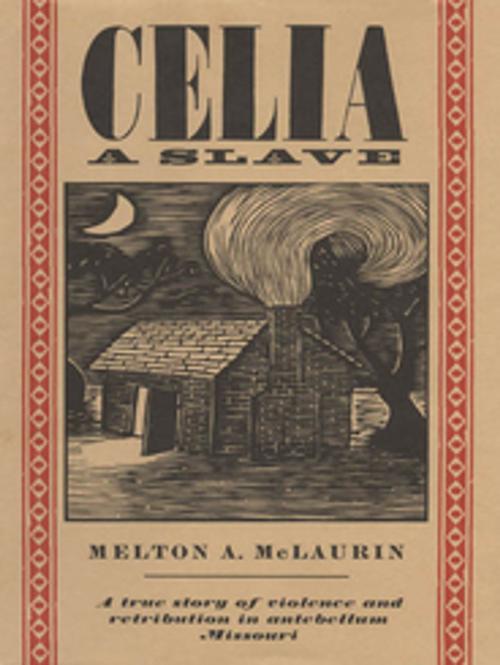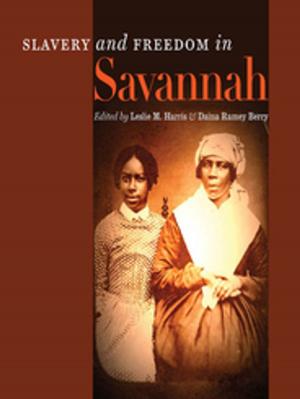Celia, a Slave
Nonfiction, Social & Cultural Studies, Social Science, Discrimination & Race Relations, History, Americas, United States, 19th Century, Biography & Memoir| Author: | Melton A. McLaurin | ISBN: | 9780820341590 |
| Publisher: | University of Georgia Press | Publication: | March 15, 2011 |
| Imprint: | University of Georgia Press | Language: | English |
| Author: | Melton A. McLaurin |
| ISBN: | 9780820341590 |
| Publisher: | University of Georgia Press |
| Publication: | March 15, 2011 |
| Imprint: | University of Georgia Press |
| Language: | English |
Illuminating the moral dilemmas that lie at the heart of a slaveholding society, this book tells the story of a young slave who was sexually exploited by her master and ultimately executed for his murder.
Celia was only fourteen years old when she was acquired by John Newsom, an aging widower and one of the most prosperous and respected citizens of Callaway County, Missouri. The pattern of sexual abuse that would mark their entire relationship began almost immediately. After purchasing Celia in a neighboring county, Newsom raped her on the journey back to his farm. He then established her in a small cabin near his house and visited her regularly (most likely with the knowledge of the son and two daughters who lived with him). Over the next five years, Celia bore Newsom two children; meanwhile, she became involved with a slave named George and resolved at his insistence to end the relationship with her master. When Newsom refused, Celia one night struck him fatally with a club and disposed of his body in her fireplace.
Her act quickly discovered, Celia was brought to trial. She received a surprisingly vigorous defense from her court-appointed attorneys, who built their case on a state law allowing women the use of deadly force to defend their honor. Nevertheless, the court upheld the tenets of a white social order that wielded almost total control over the lives of slaves. Celia was found guilty and hanged.
Melton A. McLaurin uses Celia's story to reveal the tensions that strained the fabric of antebellum southern society. Celia's case demonstrates how one master's abuse of power over a single slave forced whites to make moral decisions about the nature of slavery. McLaurin focuses sharply on the role of gender, exploring the degree to which female slaves were sexually exploited, the conditions that often prevented white women from stopping such abuse, and the inability of male slaves to defend slave women. Setting the case in the context of the 1850s slavery debates, he also probes the manner in which the legal system was used to justify slavery. By granting slaves certain statutory rights (which were usually rendered meaningless by the customary prerogatives of masters), southerners could argue that they observed moral restraint in the operations of their peculiar institution.
An important addition to our understanding of the pre-Civil War era, Celia, A Slave is also an intensely compelling narrative of one woman pushed beyond the limits of her endurance by a system that denied her humanity at the most basic level.
Illuminating the moral dilemmas that lie at the heart of a slaveholding society, this book tells the story of a young slave who was sexually exploited by her master and ultimately executed for his murder.
Celia was only fourteen years old when she was acquired by John Newsom, an aging widower and one of the most prosperous and respected citizens of Callaway County, Missouri. The pattern of sexual abuse that would mark their entire relationship began almost immediately. After purchasing Celia in a neighboring county, Newsom raped her on the journey back to his farm. He then established her in a small cabin near his house and visited her regularly (most likely with the knowledge of the son and two daughters who lived with him). Over the next five years, Celia bore Newsom two children; meanwhile, she became involved with a slave named George and resolved at his insistence to end the relationship with her master. When Newsom refused, Celia one night struck him fatally with a club and disposed of his body in her fireplace.
Her act quickly discovered, Celia was brought to trial. She received a surprisingly vigorous defense from her court-appointed attorneys, who built their case on a state law allowing women the use of deadly force to defend their honor. Nevertheless, the court upheld the tenets of a white social order that wielded almost total control over the lives of slaves. Celia was found guilty and hanged.
Melton A. McLaurin uses Celia's story to reveal the tensions that strained the fabric of antebellum southern society. Celia's case demonstrates how one master's abuse of power over a single slave forced whites to make moral decisions about the nature of slavery. McLaurin focuses sharply on the role of gender, exploring the degree to which female slaves were sexually exploited, the conditions that often prevented white women from stopping such abuse, and the inability of male slaves to defend slave women. Setting the case in the context of the 1850s slavery debates, he also probes the manner in which the legal system was used to justify slavery. By granting slaves certain statutory rights (which were usually rendered meaningless by the customary prerogatives of masters), southerners could argue that they observed moral restraint in the operations of their peculiar institution.
An important addition to our understanding of the pre-Civil War era, Celia, A Slave is also an intensely compelling narrative of one woman pushed beyond the limits of her endurance by a system that denied her humanity at the most basic level.















